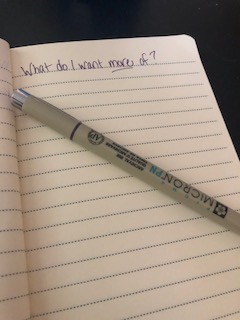On Learning to Surf
During my graduate program, we studied and practised mindfulness as part of our curriculum. The idea was that it would not only benefit us, but also those that we would be working with as part of our practicum. And did it ever. The data that was collected produced some incredible results, but I didn’t need the data to confirm the multiple changes that I experienced during this time. It was life changing, and having this set of tools in my tool box has been so helpful in the years that have passed since then.
This week was one of those weeks of chaos where I found myself unconsciously opening my tool box and getting just the tool out for what I was experiencing. There are simply so many things that we don’t have control over — in our work, in our relationships, in our lives and in the world, a world that often feels like it is moving at increasingly rapid pace… But what we do have control over is taking the time to make sure we are still breathing — and not just breathing, but good, healthy, centering breaths. Being aware of how our thoughts are (or are not) serving us.
Reconnecting with who we are in those moments and times that try us, that can have the effect of feeling beaten down. Which could lead to giving up. But that’s not who you are, is it?
Mindfulness is an active, nonjudgemental awareness of our thoughts and feelings in the present moment. Our thoughts will lead to feelings and feelings will lead us to action (or inaction.) Often this pathway is one that began before we may even have had an awareness that it was happening, it is deeply ingrained in who we are. You’ve heard the phrase, “The heart wants what the heart wants,” right? So does the mind.
The mind doesn’t have time to assess every new bit of information it crosses, so it attaches it to the experiences, feelings and thoughts that we have already had. It’s trying to streamline information for us, in order to expedite our lives. But that can often begin to hurl forth into fear of what the future will bring, or thinking about past missteps, mistakes or things we wish that we could change.
The trouble is, it can often attach beliefs, feelings and thoughts to its counterparts that are no longer helpful to us, or that serve us. Left unnoticed, this pattern can continue for a life span and cause needless suffering. There are so many benefits of mindfulness — to name a few: increased focus, decreased depressive and anxiety symptoms, better ability to handle stressful situations, and overall better general health. What’s not to love?
As with anything, the more you practice, the better the results, the better you are able to grab the right tool for the situation. Mindfulness practice is key to happier, healthier life. Jon Kabat Zinn once said, “You can’t stop the waves, but you can learn to surf.”
TRUTH.
Kara Joy Werner
Related Posts
Leave a Reply Cancel reply
Categories
- anxiety (1)
- change (4)
- Counseling (1)
- grief (2)
- healing (1)
- holiday (1)
- Inspiration (5)
- loss (1)
- Mindfulness (6)
- Self care (7)
- Support (1)
- therapy (1)
- Transformation (5)
- Uncategorized (1)





